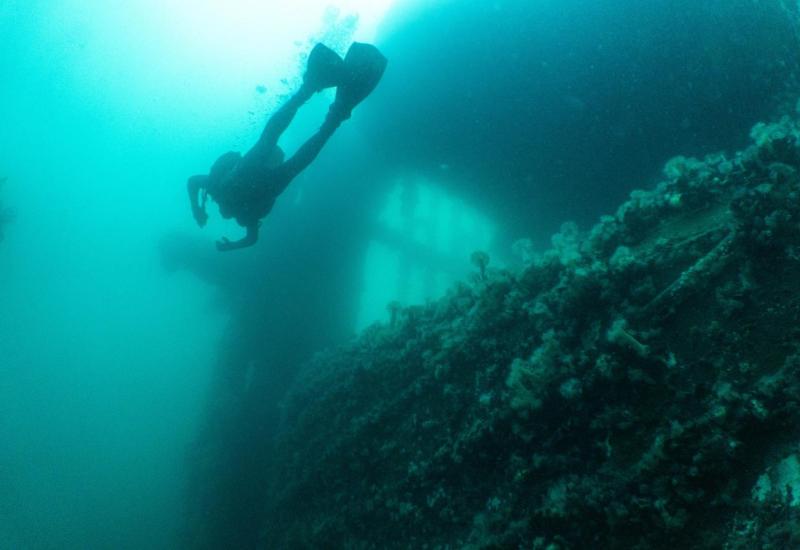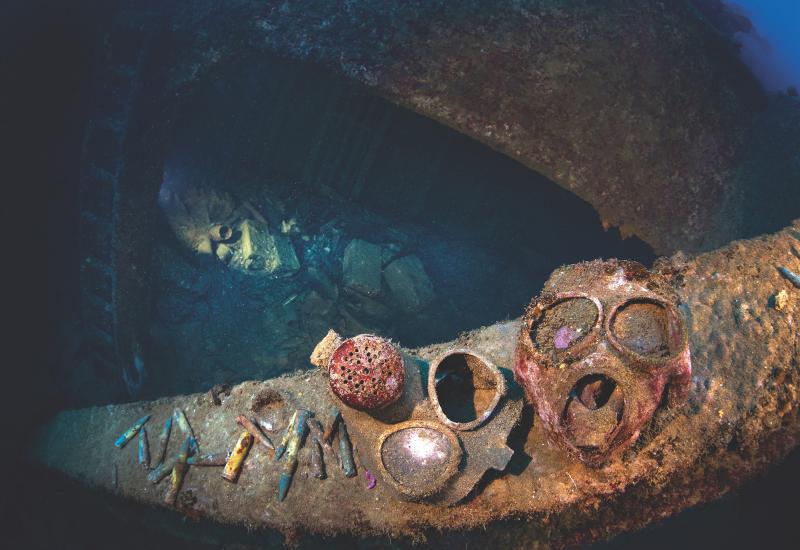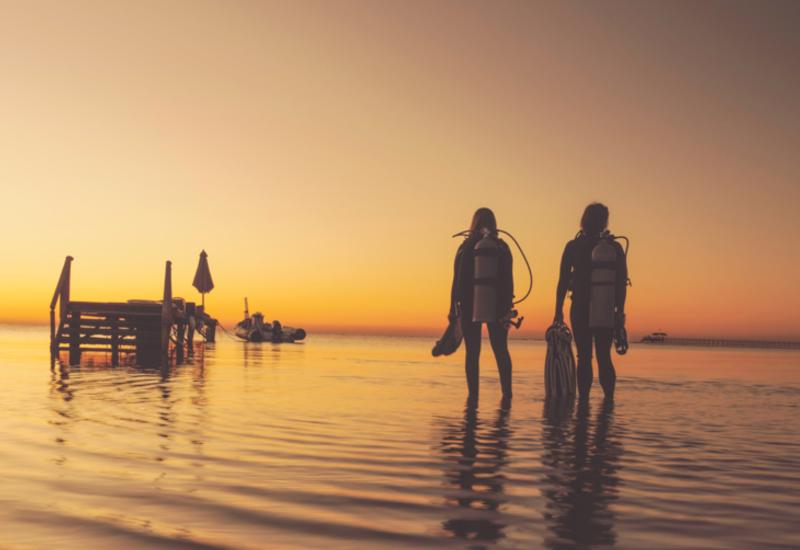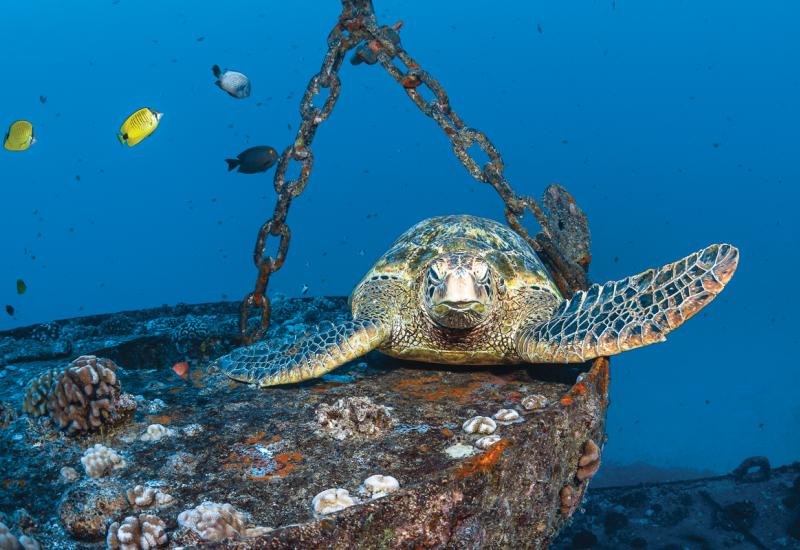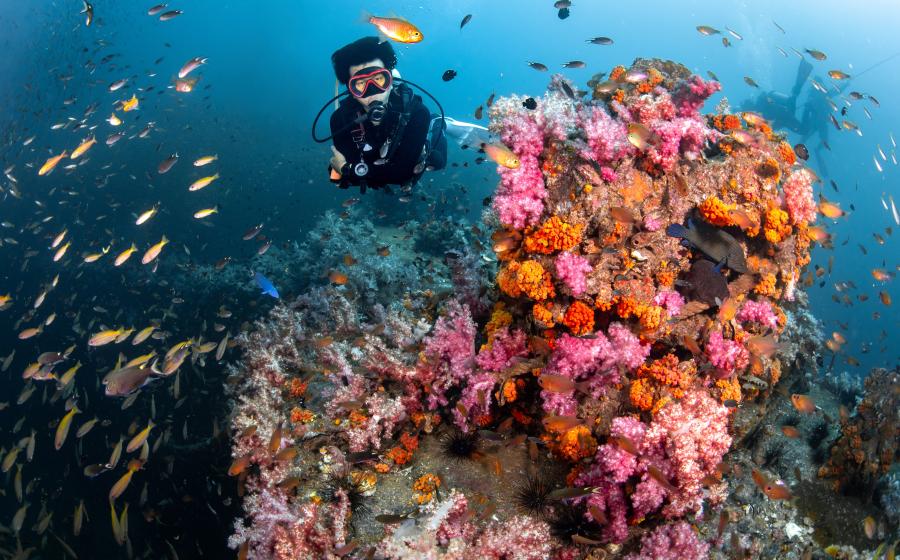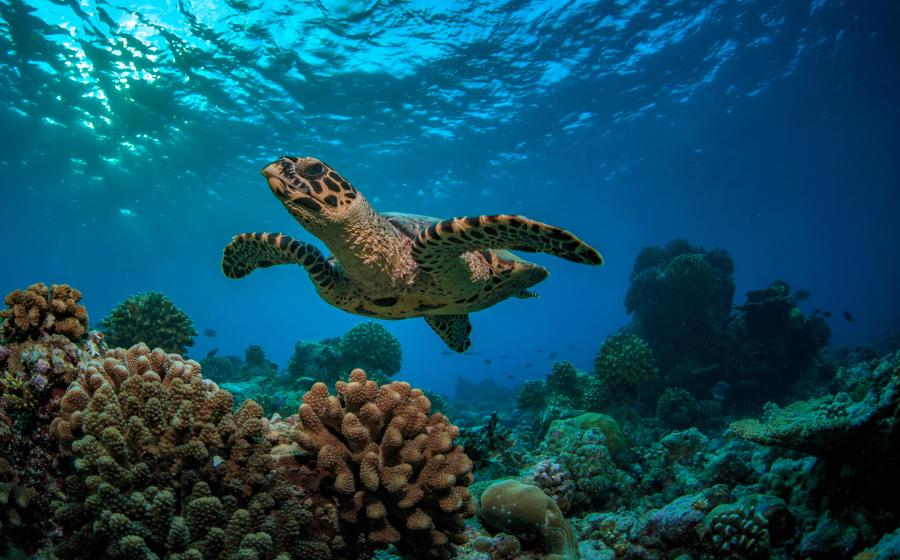5 New Artificial Reefs Sunk in 2018
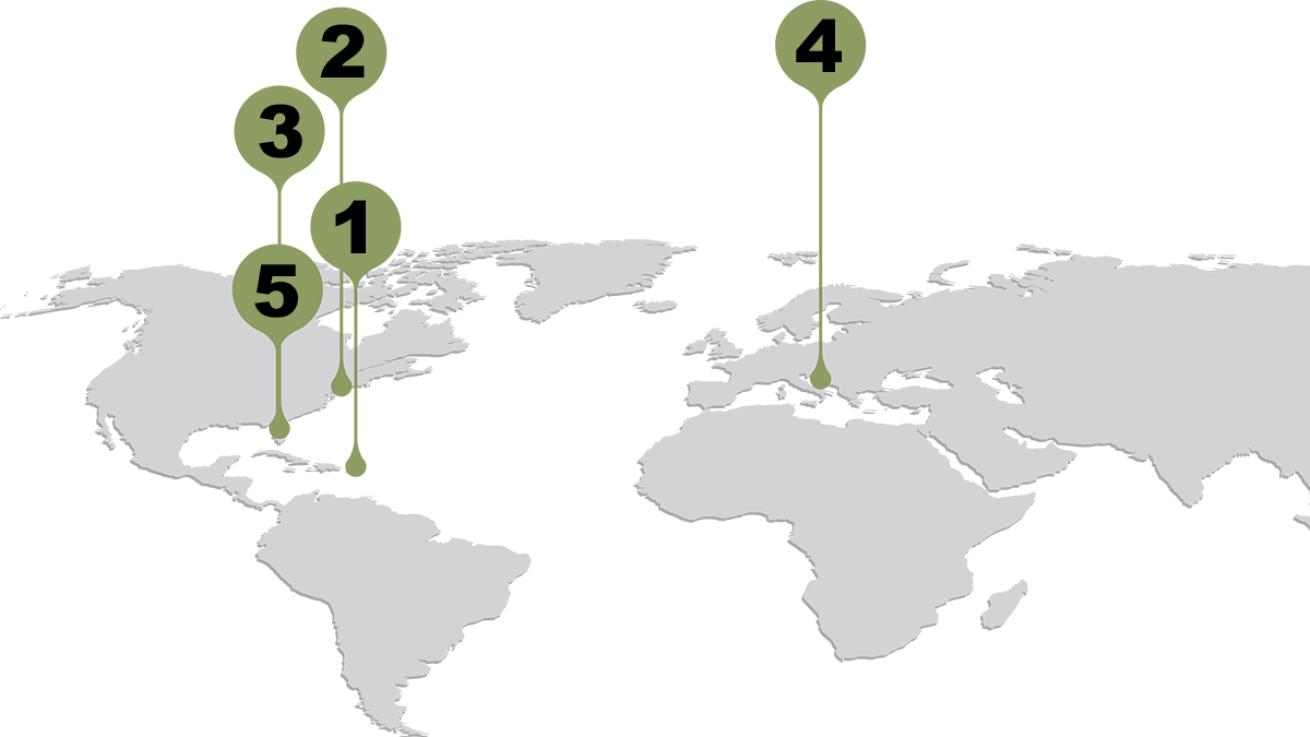
Scuba DivingNew artificial reefs, or shipwrecks, for scuba divers to keep on their radar.
1) HMBS Yellow Elder
Location: New Providence Island, Bahamas
Type of Ship: Royal Bahamas Defense Force cutter
Depth: About 60 feet
Access: Divable
Native Bahamian Stuart Cove is known far and wide for the bevy of wrecks sunk in the “backyard” of his New Providence Island dive operation. His latest, sunk on June 6, is the HMBS Yellow Elder, a 108-foot ship named for the Bahamian national flower. Originally commissioned November 20, 1986, as one of only three Protector Class ships built by Fairey Marine in England, Yellow Elder was used by the Royal Bahamas Defense Force to battle illegal immigration, poaching and drug smuggling. It was decommissioned in 2016, when the 30-year-old ship became too costly to maintain. Stuart Cove’s Dive Bahamas was selected to take possession and repurpose it as a dive site. After removing all residual oil and fuel as well as potential hazards to divers, the vessel was sunk approximately 5 miles south of Coral Harbour. The Coast Guard cutter joins its sister ship, HMBS Port Nelson, as part of the Bahamas Artificial Reef Program; it’s one of 30 wrecks that Stuart Cove’s Dive Bahamas has sunk over four decades, 20 of which are active dive sites.
2) Twin Capes
Location: Cape May, New Jersey
Type of Ship: Vehicle and passenger ferry
Depth: 120 feet
Access: Divable
In June, 320-foot ferry Twin Capes was placed on the Del-Jersey-Land Inshore Reef — so named because it’s equidistant from Lewes, Delaware; Cape May, New Jersey; and Ocean City, Maryland — near the former Coast Guard cutter Tamaroa (a Battle of Iwo Jima survivor purpose-sunk in 2017), 26 miles southeast of Cape May.
Built in Houston in 1974, Twin Capes was the flagship of the Delaware River and Bay Authority fleet, and served a 17-mile run that linked New Jersey and Delaware; with a generous 68-foot beam, it could carry nearly 900 passengers. Its high operational costs compared with newer and more-efficient vessels eventually doomed the ferry, according to workboat.com, which reports on maritime industries.
A major upgrade in 1996 gave the ferry four new decks, a higher pilothouse and taller stacks, which gave the vessel a 70-foot-high profile and is expected to help the artificial reef attract even big pelagic species such as tunas and sharks, according to the Delaware Department of Natural Resources and Environmental Control.
3) Brause Girls Reef
Location: Stuart, Florida
Type of Ship: Tugboat
Depth: 200 feet
Access: Not divable
In August, the former tugboat Penobscot became the newest artificial reef in Martin County, Florida, purpose-sunk about 10 miles offshore. The 100-foot tug had spent most of its life pulling barges in New York. It was declared derelict after Hurricane Matthew, and was prepped for the sinking by Artificial Reefs International Inc., the firm responsible for sinking Vandenberg off Key West and Mohawk off Lee County, Florida.
While not divable, the placement was designed to enhance marine life in the area, which has been impacted by water-quality issues along the coast; the tug, which has an unusually tall profile, reaches up 60 feet from the bottom.
“The water quality inshore has been deteriorating,” John Burke, Martin County Artificial Reef Fund president, told WPTV Channel 5 in West Palm Beach after the sinking. “Out here, the problem does not exist. It’s an opportunity for fish.”
The tug joins about a mile’s worth of artificial reef that MCAC has been building for 16 years. Its new name, Brause Girls Reef, honors the granddaughters of the principal funders.
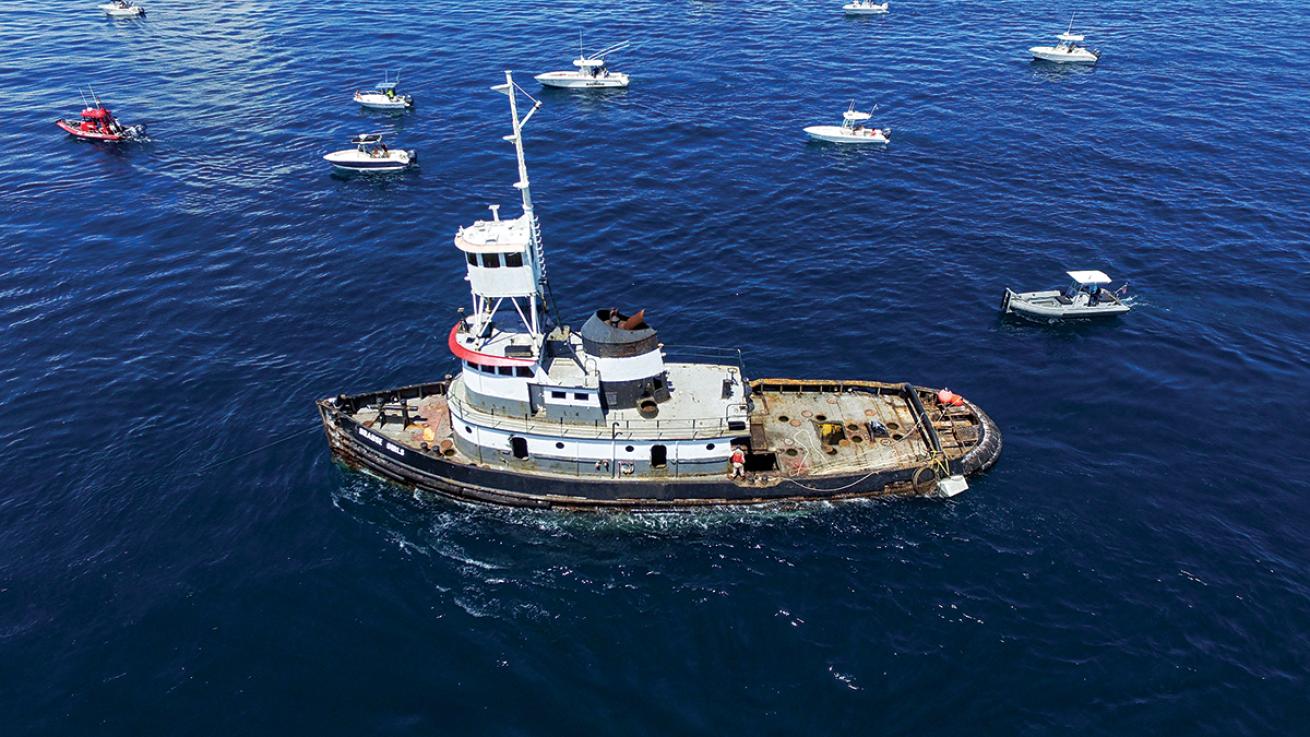
Artificial Reefs International Inc.The former tugboat Penobscot is reborn in Martin County, Florida, as Brause Girls Reef.
4) Stations of the Cross
Location: Trogir, Croatia
Type of Reef: Undersea monument
Depth: Around 33 feet
Access: Divable
In April, a 26-foot statue of Christ with arms upraised was the last piece to be placed in an undersea park representing the Stations of the Cross — in Roman Catholicism, a series of 14 scenes representing Jesus’ progress from his condemnation by Pontius Pilate to his crucifixion and burial — the only underwater Stations of the Cross in the world, according to Croatia Week news website.
The statue, made from more than 20,000 pounds of reinforced semi-solid concrete, is one of 52 figures that form an underwater museum in Jelinak Bay, west of Trogir.
The installation was the brainchild of Joško Kandija — owner of Blue Nautica dive center in Trogir — and artist Valentino Val. Most of the other statues in the group are also made from reinforced semi-solid concrete and are around 6 feet in height.
“This will surely attract a lot of divers and pilgrims alike,” Croatian Parliament member Milijan Brkic told Croatia Times news website.
5) Lady Philomena and Everglades
Location: Volusia County, Florida
Type of Ship: Steel cargo vessel and tugboat
Depth: About 70 feet
Access: Divable
Goliath grouper, red snapper, mangrove snapper, almaco jacks and more were spotted almost immediately on the Lady Philomena and the Everglades, two vessels purpose-sunk together in June, 9 miles off Volusia County, Florida.
“It really is surprising how quickly the fish have moved in,” Volusia County coastal projects manager Joe Nolin told The Daytona Beach News-Journal in July.
The 150-foot Lady Philomena was seized by the U.S. Customs Service in Miami during a 2017 drug raid — officials found 47 kilos of cocaine and a bottle of rum wrapped in a voodoo doll, among other contraband. Today it sits “nearly dead-level upright on the seabed,” Nolin said, its bow pointed toward the southwest, with a vertical profile of 35 feet.
About 190 feet to the northwest of Lady Philomena sits the Everglades. The 90-foot tug lies close to a concrete culvert and structure pile, including one pile nearly three stories high, according to the News-Journal. Everglades was salvaged after it sank in the Miami River; both vessels were built in 1956 — Lady Philomena in Germany and Everglades in New York.
“The tug is leaning slightly to the west, and the very tippy-top is at 42 feet,” Nolin told the News-Journal. The two ships bring the total number of artificial reefs in Volusia County to more than 140.

